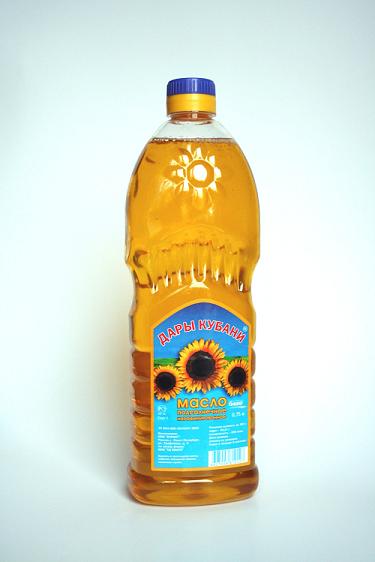Warning: be prepared to clean out your cabinet.
Out of all the conversations I have related to healthy eating, one of the most common subjects is vegetable oil. Like processed carbs, vegetable oil is an incredibly destructive part of our diet that seems to be completely innocuous. So here’s the deal.
Today’s rant is a little technical, but it’s potent stuff. There are two main parts. One involves the unstable chemical structure of vegetable oils, and the other involves omega 3 and omega 6 fatty acids.
Let’s get down with the scientific properties of vegetable oil. This could go for soy, canola, corn, and any number of others. At room temperature, butter is solid. Why is that? Butter is mainly a saturated fat, meaning that it is “saturated” with hydrogen atoms. In contrast, most vegetable oils are primarily monounsaturated or polyunsaturated fat. For the purposes of our discussion, this simply means that they are not as solid; this is why they stay liquid. More about fats here.
Vegetable oils are not as strong as saturated fats, so they can break down. When you cook them, they come apart, forming all sorts of weird molecules you don’t want to be eating. For example, olive oil is certainly healthy, but you don’t want to be cooking with it. High quality olive oil always comes in a dark bottle; this is because sunlight alone can break down the molecules down over time. The same goes for other vegetable oils.
So oils break down. What’s the big deal? Consider this: during the processing of vegetable oils, they are often subjected to enough heat to make them turn rancid. So one of the final steps of vegetable oil processing is deodorization; without this, they would smell awful.
The bottom line here is that you should cook with saturated fats like butter, coconut oil, lard, and palm oil. Olive oil is great if you are not cooking, such as with salads. Other than that, most vegetable oils should be completely avoided for health reasons. More about the good oils here.
Now we know why cooking with vegetables is dangerous. Let’s consider the next problem. You may know that omega 3 fatty acids, such as in fish oil, are great for your health. This is certainly true. But there’s a bigger story here. Instead of looking at omega 3’s alone, we should be considering the omega 3 to omega 6 ratio.
Omega 6’s and omega 3’s are just two types of fat molecules, and there are different subdivisions within these types, but let’s not get too deep into the science here. What’s important for us to consider is the fact that humans have historically eaten the same amount of omega 3’s as omega 6’s. But with today’s processed foods, instead of this one to one omega 3 to omega 6 ratio, people consume too many omega 6’s. A ratio of four to one is acceptable, but, for most people in the Western world, the ratio is often more like twenty to one.
What are the culprits of this omega 6 heavy diet? Bread, cereal, non-organic eggs, non-organic meat, and nuts often contain omega 6’s. But the primary source of omega 6’s in the Western diet is vegetable oil.
The consumption of vegetable oils has increased exponentially since the 1970s, as have any number of relevant health problems. Omega 6 heavy diets have been linked to “heart attacks, thrombotic stroke, arrhythmia, arthritis, osteoporosis, inflammation, mood disorders and cancer.” One study found that there is a link with Parkinson’s disease, and another study made a connection with depression. Greenland Eskimos, who achieve a one to one fat ratio, have extremely low heart disease rates, diets low in omega 6’s also lower the risk of memory problems. In general, omega 6’s can be linked to chronic inflammation (leading to arthritis or other problems), free radical damage, and poor heart health. Further discussion here.
The kicker is that having too many omega 6’s in your diet may prevent any of the benefits of omega 3’s from coming to fruition. Taking omega 3 supplements like cod liver oil is great, but not if you are consuming wild amounts of omega 6’s.
So there you have it. Vegetable oils break down under fire, and they contain many of the destructive omega 6’s we should be trying to avoid.
Thanks for reading, take it easy everybody.














How does the deodorization process of olive oil harm eaters?
It seems like trans-fat free margarines would be a better dietary decision considering cholesterol is one of the reasons people stay away from butter in the first place.
Good questions.
The deodorization process is not necessarily harmful; it just shows what steps vegetable oil (not just olive oil) manufacturers go through to mask the fact that their products have gone bad.
And unfortunately, trans-fat free margarine is made with the same vegetable oils talked about above. So you should definitely stick with the saturated fats. The good news is that getting your omega 6/omega 3 ratio in line is great for your cholesterol. Check it out: http://www.optimal-heart-health.com/omega_3.html
sam-
you’re giving me a headache 🙂
i knew it! i was always fighting with my mom cause ive been using butter for everything why she continued to use vegetable oil… now, besides of my personal taste, i have some scientifics to make an argument 😉
olive oil is great for light cooking and sauces.